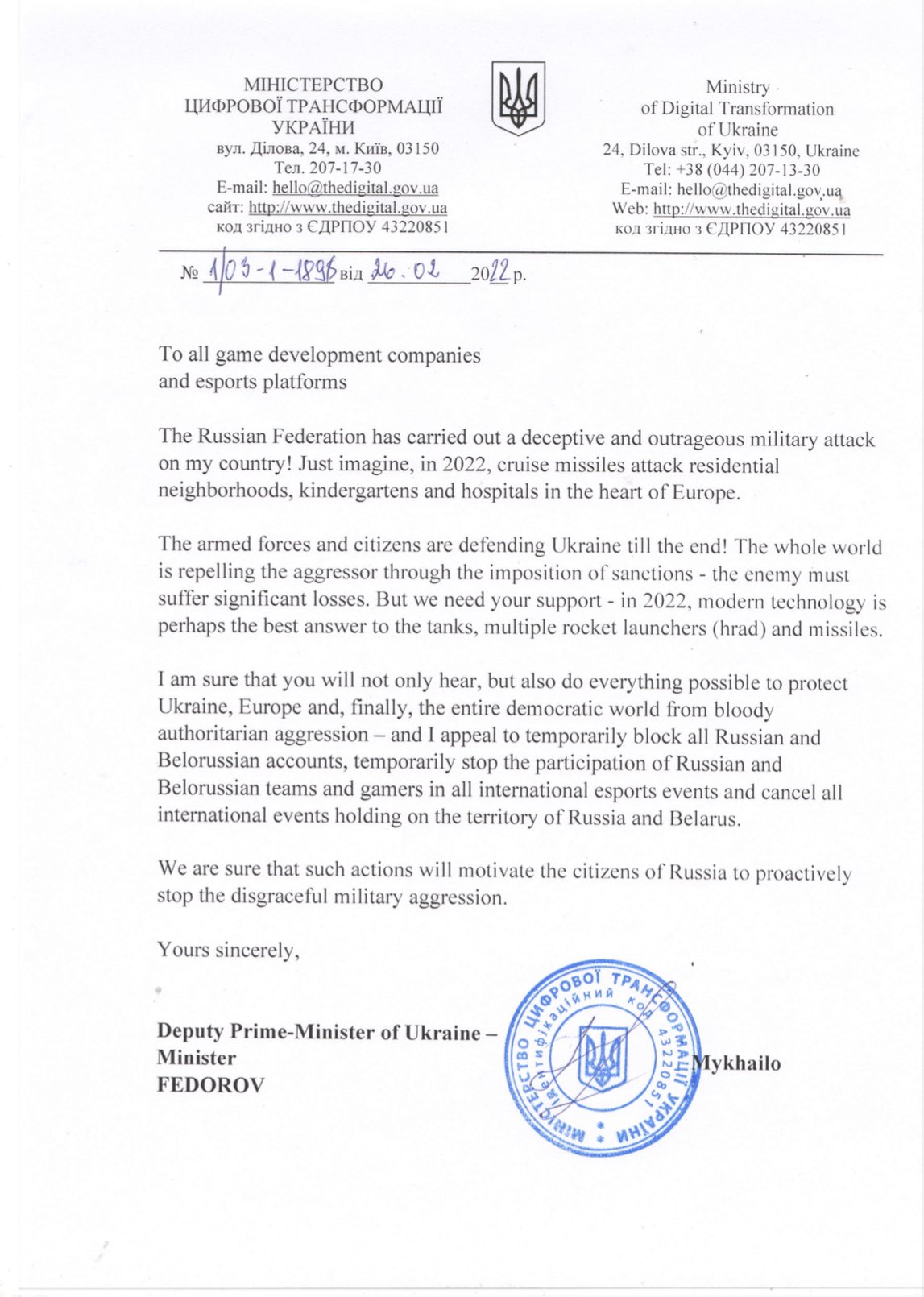Tag: russia
-

Ukrainian Government Calls for Video Game Sanctions on Russia & Belarus
The invasion of Ukraine has led to the Vice Prime Minister of Ukraine & Minister of Digital Transformation of Ukraine (that’s one person, Mykhailo Fedorov) requesting via Twitter that Microsoft’s Xbox division, and Sony’s PlayStation division, in addition to “all game development companies” and “esports platforms”, to temporarily block all games from accounts in Russia…
-
A Direct Line to Compromise
Our days aren’t complete without the latest aside in the ongoing disaster. This time it’s a secret phone line that Trump’s son-in-law wanted to set up between Trump’s transition team and the Kremlin using Russia’s technology. Ellen Nakashima, Adam Entous, and Greg Miller for the Washington Post: Jared Kushner and Russia’s ambassador to Washington discussed…
-
An Idiot’s Guide to Mishandling Classified Information
Absolutely insane series of events. Yesterday the Washington Post’s Greg Miller and Greg Jaffe reported that Trump gave classified information to Russian Foreign Minister Sergei Lavrov and Ambassador Sergey Kislyak in front of the Russian press during their jovial meeting at the White House: The information the president relayed had been provided by a U.S.…
-
More Details About Comey
The WSJ’s Shane Harris and Carol E. Lee: Mr. Comey started receiving daily instead of weekly updates on the investigation, beginning at least three weeks ago, according to people with knowledge of the matter and the progress of the Federal Bureau of Investigation probe. Mr. Comey was concerned by information showing possible evidence of collusion,…
-
Who Do You Meet With After Firing The FBI Director Investigating Your Collusion With Russia?
David E. Sanger and Neil MacFarquhar for the Times: Only hours after dismissing James B. Comey as director of the F.B.I., amid an investigation into the Trump campaign’s contacts with Russian officials, the president met with Russia’s foreign minister, Sergey V. Lavrov, at the White House. The Russian ambassador to the United States, Sergey I.…
